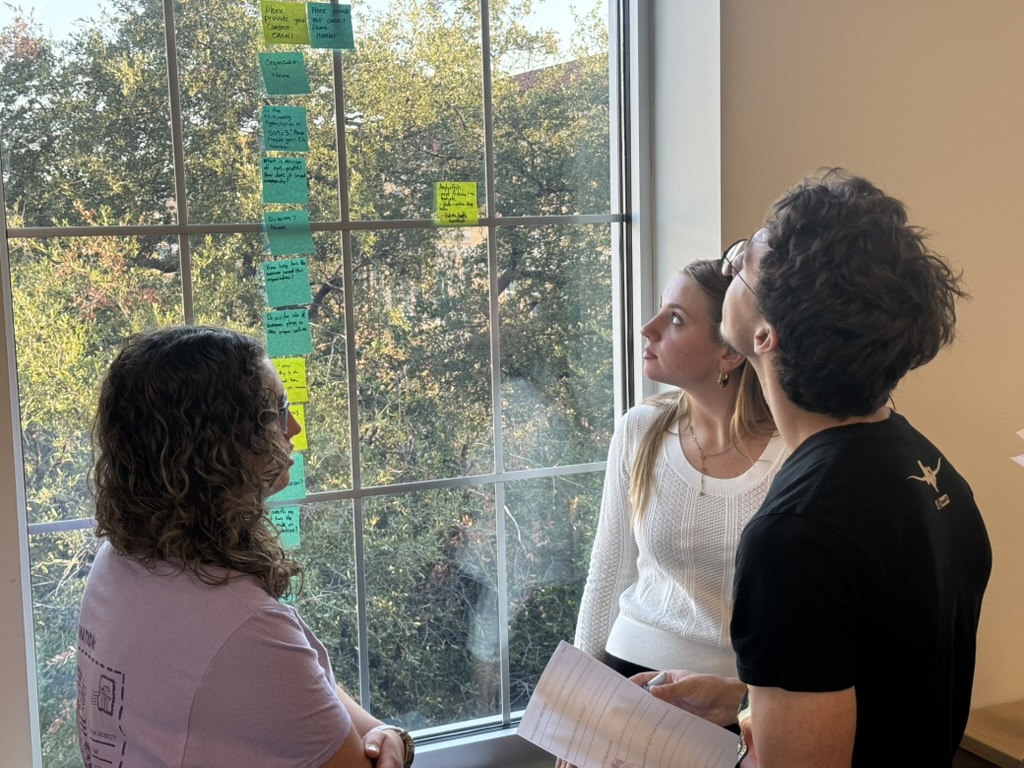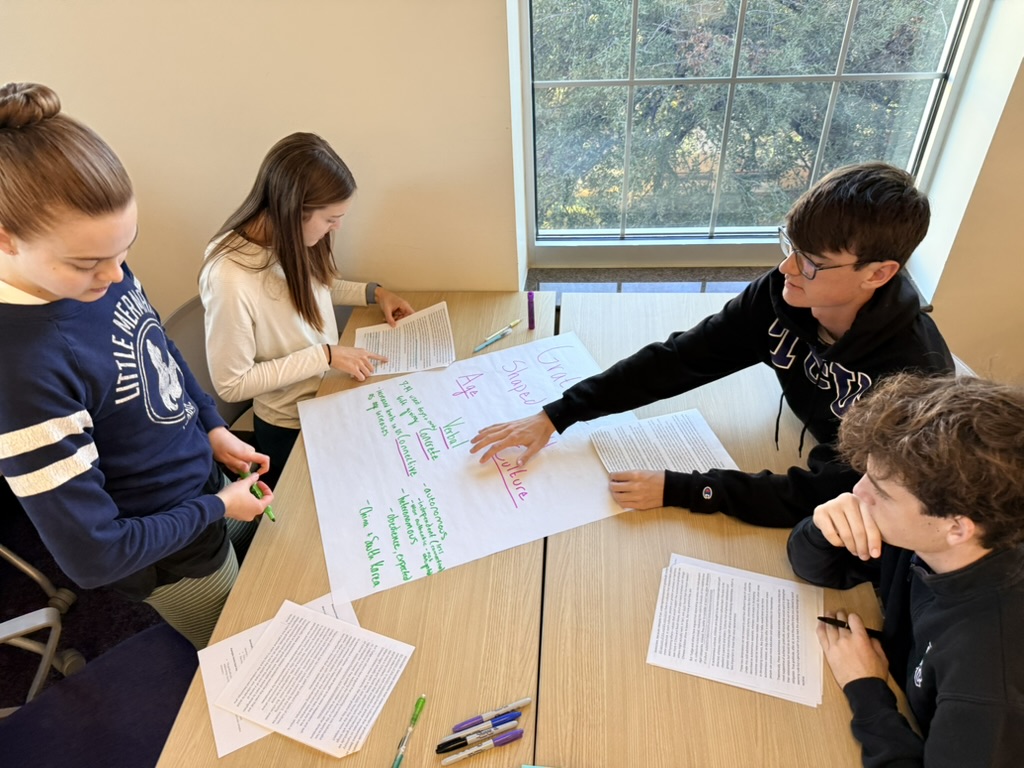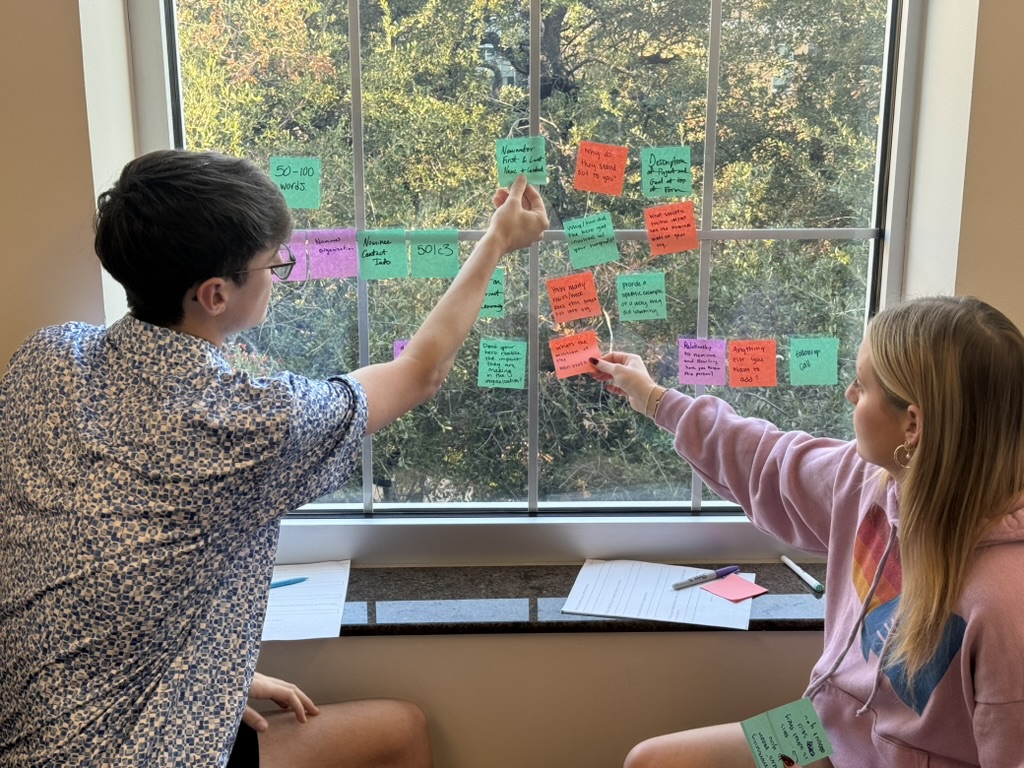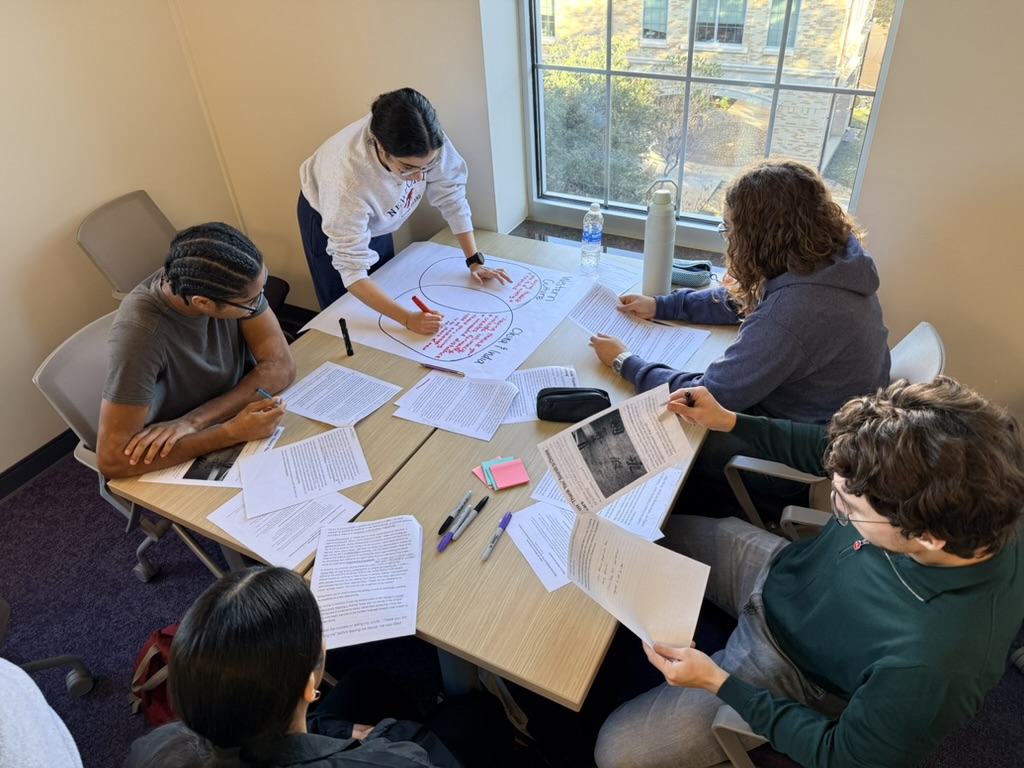In an academic culture often driven by ambition and achievement, first-year Roach Honors students are asked to pause and practice gratitude.
The honors course, Rhetoric of Gratitude, invites students to explore what it means to live with purpose, humility and awareness. Taught by Ron Pitcock, the Wassenich Family Dean of the John V. Roach Honors College, the class reframes gratitude not as a polite courtesy or performative gesture, but as a meaningful and rhetorical practice that shapes one’s character.
“I’ve watched too many students struggle under the weight of their own expectations and the pressures of our culture,” Pitcock said. “I’ve seen how easily a highly motivated person can lose sight of the privileges, gifts and networks of support they already possess.”

Pitcock has worked closely with some of the university’s most highly motivated students since 2001. While he has watched many excel, he has also seen the toll of an achievement-obsessed culture.
The course resonates with many Roach Honors students, who say they often feel overwhelmed by a culture where gratitude can feel more performative than meaningful.
“Our society is becoming a place where gratitude is often monetized, acts of service are loud, and kindness is performative,” said first-year biochemistry student Korbin Jastrow. “This course taught me that gratitude is not the product of a desirable outcome, but rather an invitation to pause and reflect.”
For Pitcock, gratitude is foundational to what it means to be human. He often references Cicero’s description of gratitude as “not only the greatest of virtues, but the parent of all the others.” He argues that, without it, people become disconnected from their shared humanity.
“Gratitude keeps us grounded in reality,” he said. “It reminds us that we belong to each other, that our flourishing is bound up together.”
A key part of the course is gratitude journaling, which encourages students to reflect more intentionally on their daily experiences. Many in the class have discovered how gratitude is both a grounding force and a path to self-understanding.

“Reflecting on my nearly 50 entries, I realized my most superficial entries were written on the ‘easy’ days,” Jastrow said. “My deepest entries emerged from the emotionally challenging, exhausting days. On those days, I clung to my gratitude, and it grounded me.”
That sense of grounding has reshaped how students navigate their relationships and daily lives.
“What I have learned about gratitude in this class has already shaped my relationships in a positive way and will continue to do so,” Jastrow said. “It has taught me intellectual humility, patience and more joy than I ever thought possible.”
Other students said the course helped them see gratitude as a way of life, not just something practiced occasionally.
“This class taught me that gratitude is not simply something you practice in November,” said fellow first-year biochemistry student Emily Morales. “True gratitude is a lifestyle choice where you consistently embrace all of life’s beauty and opportunities. When you practice gratitude, you live more fully and develop a more positive outlook on life.”
Pitcock believes this internal work is what ultimately prepares students not only for careers, but for leadership grounded in humility and compassion.

“These students will shape the communities and corporations of the future,” he said. “Those spaces will need leaders who lead with humility and appreciation, not just ambition. A grateful and giving leader is a better leader.”
If students leave his course with only one lasting takeaway, Pitcock hopes it is the ability to distinguish between performative and genuine gratitude.
In a world driven by outcomes and recognition, Pitcock’s class invites students to slow down and consider what gratitude actually looks like in their everyday lives.
